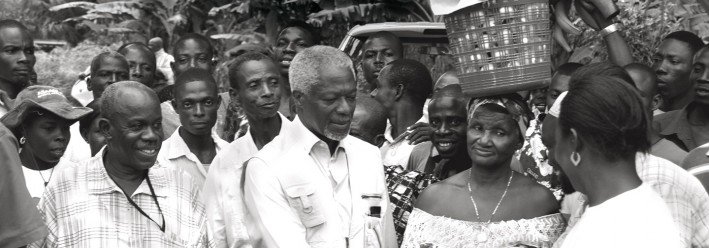Over the past twelve months Africa has undergone dramatic and unexpected changes.
The Arab Spring, the secession of South Sudan and the presidential, legislative and local elections in an astounding 27 African countries have all transformed the continent this year.
Governance in Africa has never been as high on the international media agenda as it is now.
These events put a new focus on the 2011 Ibrahim Index of African Governance.
The Index, now in its fifth year, is published by our longstanding client, the Mo Ibrahim Foundation. It measures the delivery of public goods and services to African citizens by their governments in 53 African countries.
The 2011 Index shows that countries that take a holistic, equitable and inclusive approach to the management of their countries improve the most over the long-term. Its findings challenge the idea that governments can pick and choose which areas of leadership to focus on at the expense of others.
Countries such as Libya, Tunisia and Egypt show economic progress but perform poorly in the area of human rights and democratic progress. The Index team argue this skewed focus, which denies citizens certain public goods and services, could have been the trigger for unrest in these countries.
Portland works with the Foundation to launch the Index every year. The Index is designed first and foremost as a tool for African governments, policy makers and citizens. Our primary role is to ensure it reaches as wide an audience as possible.
This year we supported the Index launch at press conferences in London, Dakar, Johannesburg and Nairobi with members of the team on the ground in each location.
A live satellite link-up between cities worked seamlessly. Journalists at each event were able to question Mo Ibrahim and other Foundation Board Members about their country’s results in real time.
We drafted tailored press materials for each of the 53 Index countries. We also took advantage of radio’s impressive reach across the continent by creating a tri-lingual audio podcast containing an interview with Mo Ibrahim. We distributed this feature to around 500 community, regional and national radio stations in Africa.
Our efforts paid off. The Index sparked an engaging debate in the African and international media, from the UK to Brazil, France to the US and Portugal to Canada.
African national journalists focused on their individual country’s performance. A quick scan of news stories from the national press shows the extent to which the Index is taken seriously: The Nairobi Star questioned Kenya’s performance compared to its neighbours while The Daily Maverick singled out South Africa’s poor score in personal safety. The Daily Trust lamented Nigeria’s poor performance compared to smaller African nations and the Daily News wondered how Zimbabwe was not bottom of the table. It is great to see African journalists questioning existing narratives and drilling down to real data.
This level of commentary shows the Index is shining a light on governance in Africa and encouraging governments to be more accountable.
The Foundation made another significant announcement this year. After two years without a winner, they awarded the annual Ibrahim Prize for Achievement in African Leadership to Pedro Pires, former President of Cape Verde, in recognition of his record of “transforming Cape Verde into a model of democracy, stability and increased prosperity.”
It was an important moment for Africa and its leaders and one that helped shift media attention from the usual doom and gloom narrative onto one of Africa’s success stories.
The Prize will be officially presented to President Pires at a ceremony in Tunis this weekend with live performances and speeches from major international personalities. To kick-start the weekend, the Foundation has organised a public music concert with the theme “Africa Celebrates Democracy”. African superstars Youssou N’Dour and Angelique Kidjo will perform alongside Tunisian artists for 5,000 Tunisians to recognise the critical role the country’s youth played in sparking the Arab Spring and transforming their country. On Sunday there will be a discussion forum for key stakeholders to debate how Africa can maximise its potential to become a serious agricultural producer.
Portland will be with the Foundation in Tunis to help pay tribute to the country that sparked the movement for greater transparency and accountability. It will be a celebration to mark the end of a historic year for both Tunisia and Africa.

